
EOTAS – Case Study 4
EOTAS (Education Otherwise Than at School) is a legal provision in the UK allowing specific children with special needs to be educated in an alternative

EOTAS (Education Otherwise Than at School) is a legal provision in the UK allowing specific children with special needs to be educated in an alternative
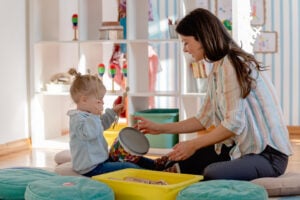
EOTAS (Education Otherwise Than at School) is a legal provision in the UK allowing specific children with Special Needs to be educated in an alternative

“There are 700,000 autistic people in the UK”. However, a recent study by The Lancet, in 2023, suggests this figure is substantially higher. There is
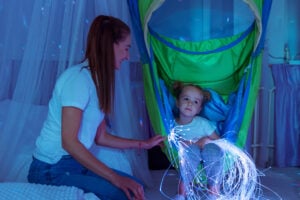
In June 2024, GOV.UK recorded that “Over 1.6 million pupils in England have special educational needs (SEN)”. This was recorded as, “an increase of 101,000
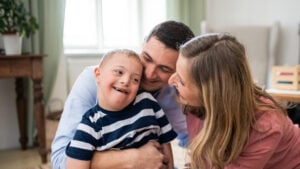
As parents strive to give their children tools to carve out positive friendships and social skills, it is helpful to remember that children with SEND
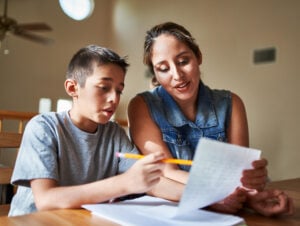
EOTAS (Education Otherwise Than at School) is a legal provision in the UK that allows specific children with special needs to be educated in an

The website ADHD UK states that “a research survey of 10,438 children between the ages of 5 and 15 years found that 3.62% of boys

Gaming is very much embedded in the culture of young people today, allowing them to escape and construct, create and conquer in a fantasy virtual

Love it, like it, or loathe it — most of us have an opinion about maths. Those who “loathe” it may recall maths as long,

Education Otherwise Than at School (EOTAS) was first recognised by Parliament during the preparation of the Children and Families Act 2014. Subsequently, Section 61 of

Gestalt Language Processing (GLP), is a style of learning language where children initially memorise phrases, and then work backwards to eventually learn the meaning of words.

We often talk about the challenges faced by young people with Special Educational Needs and Disabilities (SEND) but with the right support, SEND individuals can

Pathological Demand Avoidance, or PDA as it is more commonly known, is a neurological condition. Currently, most professionals work alongside the premise that if a

School refusal describes a child’s consistent wish to avoid school, ranging from occasional days at home to a total rejection of school culture. Children’s charity,

Dyslexia impacts on a person’s ability to learn, and quite often can remain with someone throughout their adult life. It is often assumed that people

An Education, Health and Care Plan (EHCP) is an important legal document for a child that has SEND (Special Educational Needs and Disabilities). It will

ARFID, a term created in 2013, is an acronym of “Avoidant/Restrictive Food Intake Disorder”. ARFID children will experience issues with food choices, often exhibiting fears

EOTAS, (Education Other Than at School), is a phrase now synonymous with the recognition of children who cannot be taught in school. These children require

Pathological Demand Avoidance, or PDA as it is widely known, was defined as a neurological condition in the 1980s. It is not easy to know

Statistics from the website “ADHD UK” estimate that there are 708,000 children living in the UK with ADHD (Attention Deficit Hyperactivity Disorder). Children with the

Safety is at the core of life. It is a parent’s role to safeguard their children and a teacher’s role to safeguard their students in
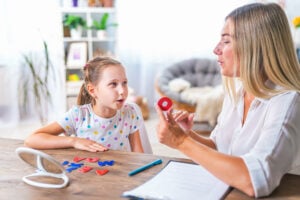
It is estimated by the British Dyslexia Association that 10% of people in the UK have dyslexia. From this statistic, 4% of the population are

Communication is our lifeline; it allows us to create friendships, convey our feelings and learn about our world. We cannot be sure how many people

When we mask, we camouflage and present a different reality to the world. The neurotypical population may mask to ease their nerves on their first

Coined as a condition in the 1980s, Pathological Demand Avoidance, or PDA as it is more commonly known, has only become more widely recognised since

The pre-teen years, when a young person begins the transition from childhood to adolescence, are a difficult time for most children. This period coincides with

Some people look back on their schooldays with great fondness while others shudder to recall harsh teachers and playground spats. But if you were to

We often hear people express concern that kids spend too much time online these days when they should be out in the fresh air, getting

Nurturing – providing food, comfort, protection or support – is often associated with looking after pets or plants or bringing up children. Certainly, all children

‘Trauma’ is a word we hear a lot of these days and for many people, it suggests an event or set of circumstances where something

If a person has been diagnosed with autism, it’s highly likely that they will also have other conditions alongside such as dyspraxia, sensory processing disorder,

Even if you haven’t heard of the term ‘FASD’ – Foetal Alcohol Spectrum Disorder – you’re probably aware that drinking alcohol while pregnant isn’t good

Society is gradually becoming more aware of how autism presents itself in females. Until fairly recently, it was widely believed that ASC was largely a

If you’ve ever tried to help your child with their maths homework, only to panic that you don’t know what you’re doing, you’ll understand just

According to the dictionary, ‘alexithymia’ is ‘the inability to recognise one’s emotions and describe them’. It often occurs as part of autism and other neurodiversities

Charlene Andruskevicius has twin sons, Oliver and Harry, who are now eighteen. Harry is autistic, visually and hearing impaired and has the cognitive ability of

It’s well-known that neurodivergent people can have food challenges. Reluctance to eat or following a restricted diet, for example, are common issues in neurodiverse children

If your child has any kind of special need, they could face different challenges to most of their peers. On top of that, because everyone

As we’re often told, many autistic youngsters are welded to their computers and tablets. Playing games, looking at websites, or scrolling through social media channels

‘Time to Talk Day’ takes place on February 1st and is now in its tenth year. Organised by mental health charities ‘Mind’ and ‘Rethink Mental

Many young people hit a patch where they lose interest in their studies. This might be due to any number of factors such as teenage

The term ‘EOTAS Package’ may sound like a cut-price holiday to a little-known Greek island but it actually stands for ‘Education Other Than At School’.

When a person is described as having experienced ‘trauma’, this usually means they have gone through or witnessed events that are extremely frightening or upsetting.

The Christmas period often inspires a flurry of creative activity in even the most Scrooge-like individuals. There are presents to wrap, cards to make and

We often hear how difficult it is for a person with ASC (autism) to find any kind of employment. According to the National Autistic Society,

A number of adults who work in offices came to appreciate the benefits of working from home during the Covid lockdowns and for many people,

Life changes when you become a parent and even more so when you have a child with special needs. Learning to understand and adapt to

Falling out with brothers and sisters or school friends, learning how to manage relationships and emotions, and understanding how to negotiate conflicts is part of

‘Executive function’ or ‘executive functioning skills’ refers to a set of cognitive skills that enable us to make plans, organise information, follow instructions, maintain focus,

According to the British Association of Play Therapists’ website, ‘Play is children’s primary form of communication. Children tell us about their inner world through play
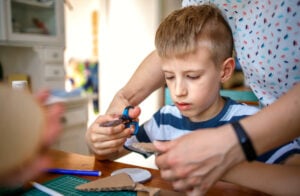
In some ways, dyspraxia is the ‘poor relation’ of special needs. Not everyone has heard of it and those that have might be unsure about

Empathy – the ability to sense what someone else is feeling and understand it from their point of view – is a vital part of

Dyslexia is a neurological condition that affects a person’s ability to read, write and spell but it can also impact their ability to organise themselves, retain

When we think about someone with ADHD – Attention Deficit Hyperactivity Disorder – many of us picture a small boy, hurtling around the classroom –

An education and healthcare plan – known as an ‘EHCP’ – is a document drawn up by a local authority which sets out exactly what
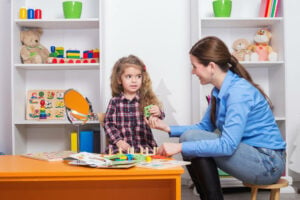
It goes without saying that we all experience the world through our senses. In fact, it’s how we learn anything – from riding a bike

Remember the thrill of getting pocket money as a child and splurging it on something completely frivolous such as three bags of jelly babies or

Going to school is as much about making friends – and falling out with them – as it is learning your times tables. But for

Seeing King Charles III glide solemnly through Westminster Abbey in his velvet robes and regalia for his coronation, how many of us are secretly reminded

You might imagine that school drama lessons would give kids with SEN the perfect opportunity to improve their confidence and social skills along with boosting

Irlen syndrome – sometimes referred to as ‘visual stress’ or ‘perceptual processing disorder’ – is a neurological condition which affects a person’s vision. However, it
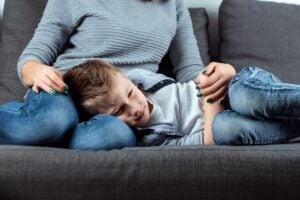
Have you heard of ‘interoception’? Many of us have only recently become aware of the word as it’s a ‘hot topic’ in the field of

Not everyone has heard of dyspraxia – a neurodevelopmental disorder characterised by problems with muscle coordination and poor organisational skills. Even less well-known, perhaps, is

‘Time to Talk Day’ was established in 2014 to encourage friends, family members and colleagues to share their mental and emotional struggles with each other.

Like many innovative ideas, Dan Clark’s enterprise started with a ‘What if…?’ Having worked in a school for many years teaching IT and music, he

Much of what makes Christmas an exciting time of year is its sensory appeal – brightly-coloured wrapping paper, twinkling lights and scented candles, special food
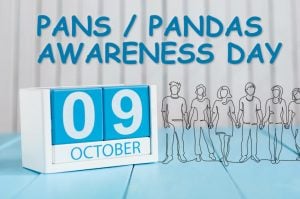
9th October is PANS/ PANDAS awareness day, but what is PANS/ PANDAS? WHAT IS PANS/PANDAS? Many parents of children with special needs have a niggling

If your child has recently received a diagnosis of ADHD, you’ve probably done what many other parents in your situation have done before you and
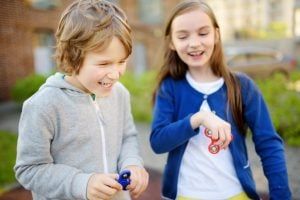
The last few years have seen an upsurge in awareness of the differences in boys and girls with special needs. Neurodivergent males, the experts now
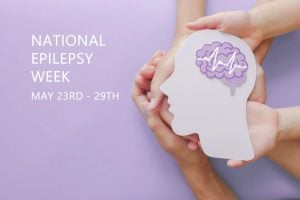
Epilepsy is a neurological condition that affects approximately 600,000 people in the UK. Many of us associate it with what we’ve seen in films and

Discovering that your child has special needs – which could be anything from a physical disability such as hearing impairment or cerebral palsy to the

For most people, the teenage years are a time of great highs and soul-destroying lows. You get to experience some of the freedoms of adult

When the writer George Eliot said, ‘animals are such agreeable friends. They ask no questions; they pass no criticisms,’ she was onto something. Many of
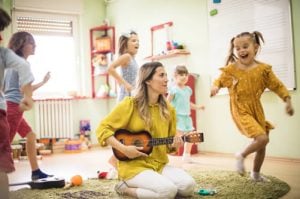
Most of us know the pleasure that comes from singing along to a favourite song or dancing to a funky disco number. But according to

Whatever you do for a living, your professional life brings you knowledge and understanding that people in other fields might not ‘get’. According to people

Many people don’t give much thought to autism – until, that is, they discover that one of their own children has ASD. After that, most

As most people who work in education will tell you, it’s important to grab ‘real life’ opportunities to consolidate what children learn in the classroom.
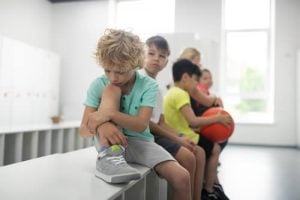
As in many areas of life, the last few years have seen people re-evaluate the way they talk about special needs. When it comes to
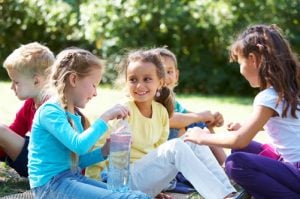
There is ever-increasing pressure on our young people in modern society: social media, mobile telephones, the world wide web, friendships, peer groups, norms and expectations

Ever drifted off in a meeting and been jerked back to the present moment by someone asking you a question you can’t answer because you

Dyspraxia – also known as developmental coordination disorder – is a condition where a person finds it difficult to make their body perform simple, everyday

As many wise people have often said, ‘Fail to plan and plan to fail’. This is particularly true when it comes to working as a

Tutors often point out that boosting a student’s self-confidence is crucial if you want to help them make academic progress. This is especially true for

Remember the excitement of starting a new academic year every September? Even if you weren’t too fussed about school in general, it was usually thrilling
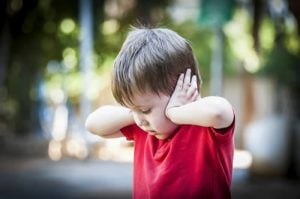
If you’ve ever winced at the sound of a fingernail scraping a blackboard or shuddered at the texture of a spoonful of rice pudding, you’ll

Growing up, in many ways, is a series of ‘firsts’ – your first day at school, for example, or learning to ride a bike, your

There’s no doubt that parenting is a tough job but being an adoptive parent comes with a host of extra challenges. All children need patience
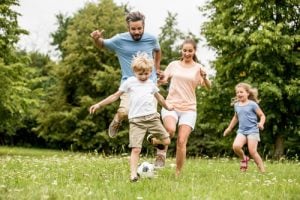
Teachers often talk about learning ‘by stealth’ – in other words: ‘helping children to acquire new skills or improve their existing abilities without them realising
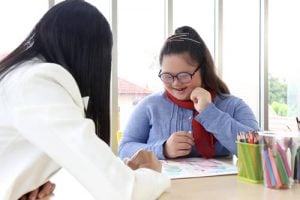
Many things can get in the way of a child or young person’s ability to learn. It could be that they have a condition such

When you have a child with special needs, you become an unwitting expert in all kinds of things you never thought you would need to
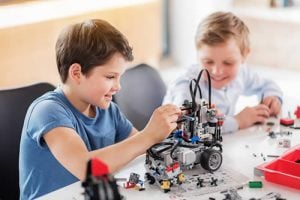
Most children kick up a fuss now and then about being told to eat their dinner, do their homework or go to bed. But for

As someone with a diagnosis of autism, dyspraxia, dyslexia and ADHD, Sienna Castellon understands more than most what it is like to live with a

World Autism Awareness Day was set up by the United Nations in 2007. It takes place on April 2nd each year with the aim of

You may have been told that your child has a problem with ‘executive functioning’. Although this might conjure up images of middle-aged men in suits
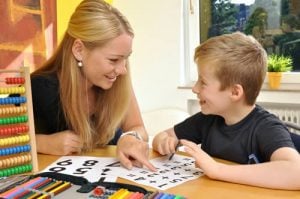
For some children, out of all the subjects covered at school, Maths may cause the most anxiety. For children with special needs, who may have

By Specialist SEN Tutor – Gillian Working with families with children with SEN has put extra demand on teachers to be all-encompassing, as well as

By Specialist SEN Tutor – Gillian Families with children with special needs have put extra demand on teachers to be all-encompassing, as well as their
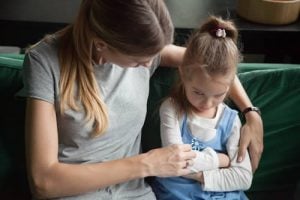
In ‘normal’ years (which 2020 is certainly not), there is usually a cause for celebration when midnight strikes and when we bring in the new

Christmas can be challenging for children with SEN and ASD (autism). Changes to their usual routines, bright lights, shiny wrapping paper and different food and

Written by Joanna Gibbs, (PGCE, QTS, B.A. (Hons), M.Ed.) specialist qualified teacher and founder and director of SENsational Tutors As the world adapts to new

Written by Joanna Gibbs, (PGCE, QTS, B.A. (Hons), M.Ed.) specialist qualified teacher and founder and director of SENsational Tutors Coronavirus home learning: 60+ brilliant free
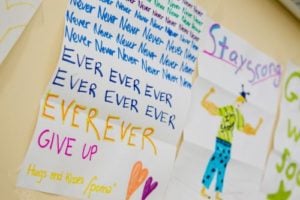
Written by SENsational Tutors Ltd. How to get through the corona virus with your child with SEN – how to help them develop a growth
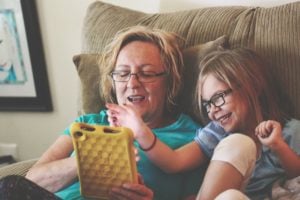
Written by SENsational Tutors Ltd. Register as a parent here to receive information about our services for children with SEN. Three tips for developing better communication

Written by SENsational Tutors Ltd. Register as a parent here to receive information about our services for children with SEN. 10 top-tips to have an enjoyable
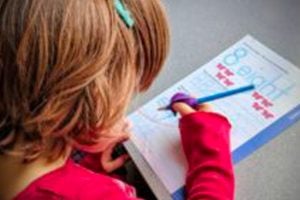
Written by Longina, a tutor working through SENsational Tutors Ltd. How to encourage your child with SEN to write For many children, not only those

Written by SENsational Tutors Ltd You can register for FREE on our website here Author: Sarah McCaan QTS, PGCE, BSc (Hons) How to encourage children with SEN to
Showing our latest reviews
Subscribe for free to receive regular updates about how to help your child with SEN/SEND
SENsational private tutors specialise in assisting children with Autism, ADD/ADHD, Dyslexia and other Special Education Needs (SEN).


Mulit-award winning. Winner of the UK’s People’s Choice, Tuition Agency of the Year 2023 & 2024.